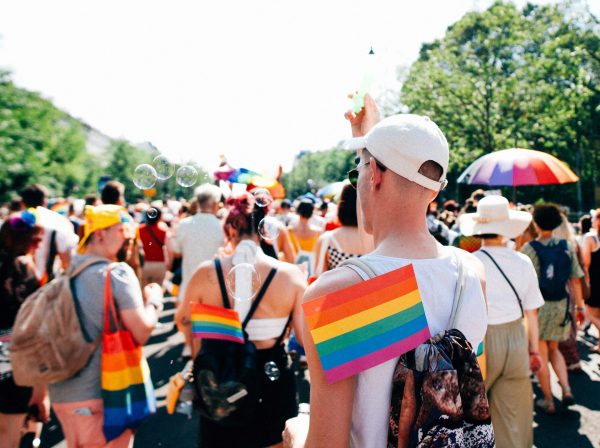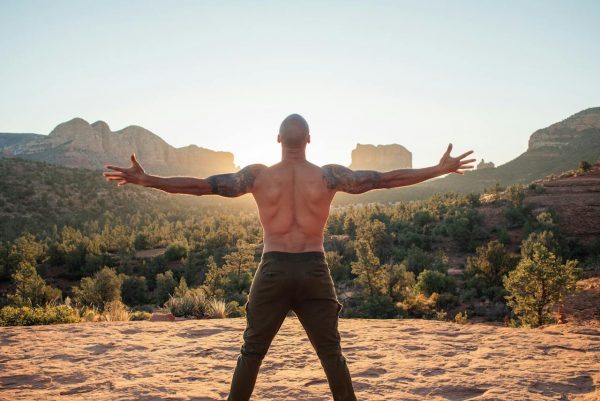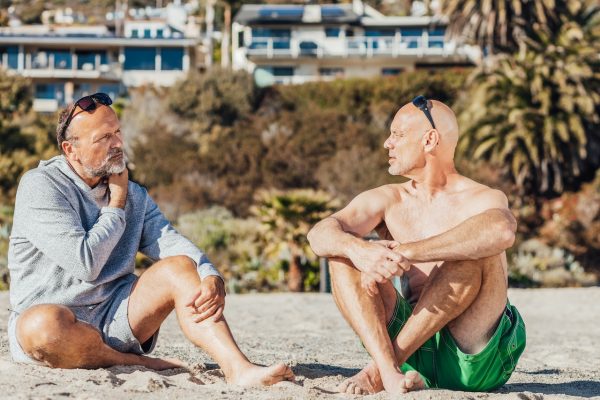
When it comes to suffering, some people seem to undergo more pain than others. Taking two terms that (mesmerizing) philosopher Judith Butler has been discussing a lot recently–precarity and performativity–I venture to say that nobody shares the same experiences, no matter how similar two people might be in terms of gender identity and sexual orientation. Precarity and performativity are just two among a number of other identity marks.

Judith Butler Truth is, we are born more or less precarious. For the sake of the argument, let’s pick a transexual man with homosexual orientation and a cisgender gay man. Although both of them are same-gender oriented, they experience their subjectivity in different ways. The first might say the second does not know what it feels like to be a gay transgender man. I totally agree. But that juxtaposition compresses way too many aspects related to their individualities. Obviously, I’m neither denying that several identity marks do trespass people’s bodies in millions of different ways nor forgetting that combined stigma may well potentialize pain.
Nevertheless, being tagged with the same identity does not make people immediately prone to having the same experiences or interpreting them in identical ways or even producing corresponding outcomes. Hopefully, if we are humble enough to listen to each other, we will be wiser and more careful when it comes to discussions about ‘legitimate protagonism’ within the LGBT community. A lot of extra pain will be prevented by doing so. After all, no one embodies every trace, need, or demand of their own niche. We are all aliens in our neighbors’ world of possibilities and so are they in ours. Anyway, we can still build bridges through sympathy rather than walls of selfishness and push the limits imposed by arbitrary norms that box us all to some degree.
Probably, most of our subjective world is built upon three hows:
- How we see ourselves
- how (we think) other people see us
- and how those affect us
Should we blame our minds for all the trouble, then? No, not so fast, kid.
Fair enough, there are social structures that have been here long before we were born. No doubt, there are several forms of precarity that result from what our predecessors thought about the issues that eventually came to concern our lives so deeply.
 Terror, domestic violence, wars, homophobia, transphobia, and even stock market crashes are often fostered by imaginary fears which can lead to concrete actions. Hatred against people who love someone of the same sex finds no reasonable anchors in the so-called real world. A homophobe’s hate is fostered by (while it also fosters) his peers’ homophobic imagination. By itself, that sickened imagination gives birth to homophobic and transphobic structures in culture, politics, economy and other fields of social organization. Those structures are likely to crystallize homophobia and transphobia to a certain extent, leading many into believing a delusive reality, which supposedly lies on grounds far beyond their discursive community’s coercion as though it was some god-given data or something like that. Not really, babe. Prejudice is a tall building erected upon very week foundations if any at all.
Terror, domestic violence, wars, homophobia, transphobia, and even stock market crashes are often fostered by imaginary fears which can lead to concrete actions. Hatred against people who love someone of the same sex finds no reasonable anchors in the so-called real world. A homophobe’s hate is fostered by (while it also fosters) his peers’ homophobic imagination. By itself, that sickened imagination gives birth to homophobic and transphobic structures in culture, politics, economy and other fields of social organization. Those structures are likely to crystallize homophobia and transphobia to a certain extent, leading many into believing a delusive reality, which supposedly lies on grounds far beyond their discursive community’s coercion as though it was some god-given data or something like that. Not really, babe. Prejudice is a tall building erected upon very week foundations if any at all.

Gay rights supporters celebrate after the U.S. Supreme Court ruled that the U.S. Constitution provides same-sex couples the right to marry, outside the Supreme Court building in Washington, June 26, 2015. REUTERS/Jim Bourg
And how can we change such nonsense at a societal level? A cultural revolution seems to be the answer or at least part of it, but it won’t take place unless a good deal of mental change takes place in advance. Media, arts, education, social networks – everything can be used to foster that revolution.
Looking back on recent events like the approval of same-sex marriage by the American Supreme Court, I strongly believe that outstanding paradigm shifts are usually preceded by steady but deep transformations. Easier said than done; one thing is for sure: Be the queer that you wish to see in the world.





